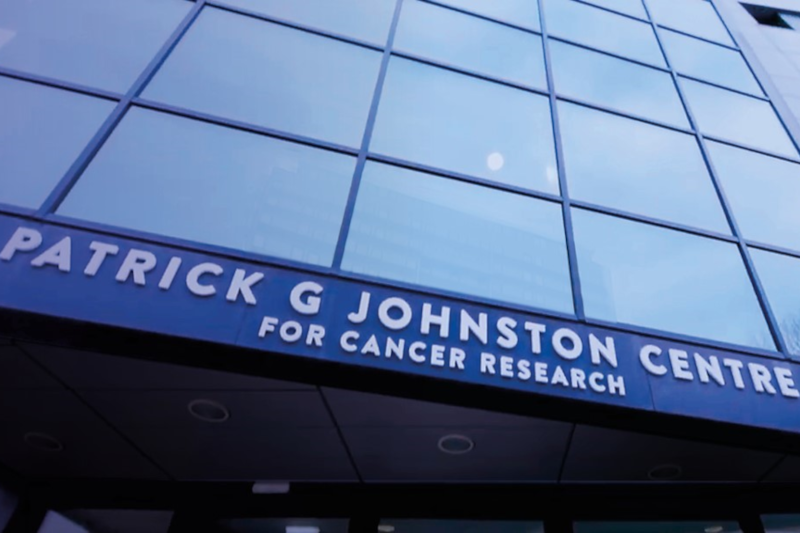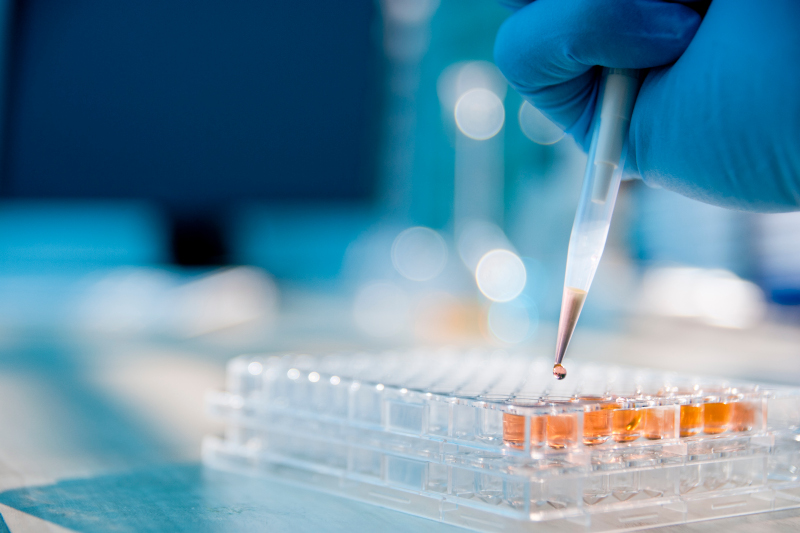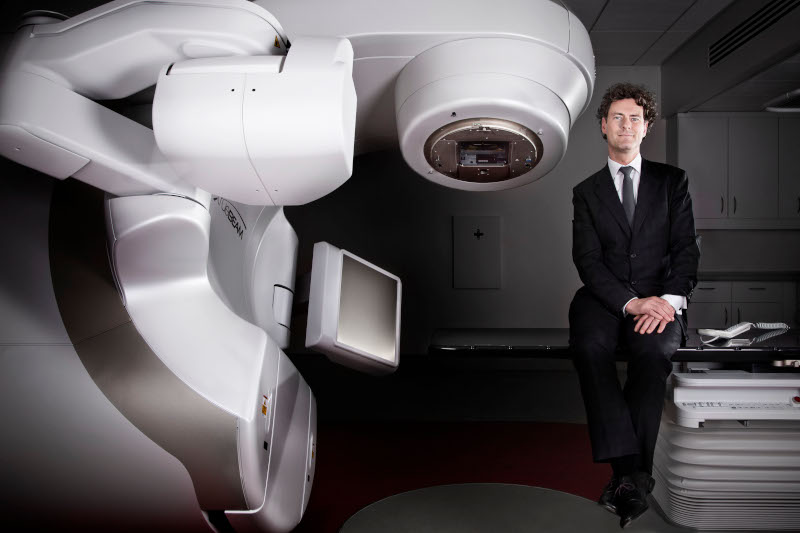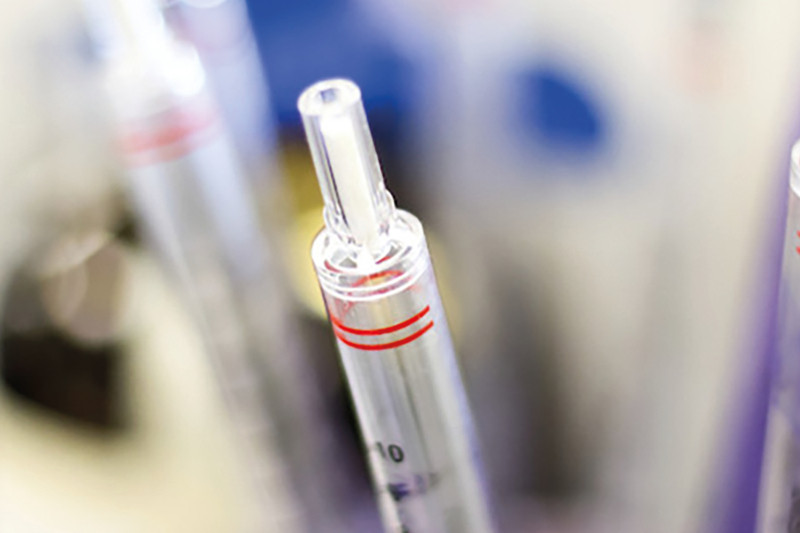
PGJCCR’s mission is to be an international leader in the global challenge of relieving human suffering from cancer, whilst delivering excellence in education and training of clinicians and scientists.
Recent work and achievements of Patrick G Johnston Centre for Cancer Research have been in the following areas:
Clinical Trials and Experimental Medicine
Development of our clinical trials and radiation research programmes are coordinated in partnership with the NI Cancer Centre. Success in programme grants and publications have dovetailed with improvements in patient care through locally developed and led clinical research, particularly in colorectal and prostate cancers. Our CRUK Experimental Cancer Medicine Centre (ECMC) programmatic funding was renewed in 2022. We are one of 18 adult cancer-focussed ECMCs in the UK. Membership of the ECMC network provides the opportunity to perform trials in collaboration with other ECMCs and provide access to clinical trials for patients locally.
The ECMC is complemented with Trials Acceleration Programme (TAP) renewal from Cure Leukaemia in 2019 and the Movember FASTMAN consortium with University of Manchester to exploit biomarker-led precision radiotherapy innovations in prostate cancer. Our capacity to deliver cancer clinical trials will be significantly enhanced by IREACH Health, a £62M integrated clinical research centre led by Queen’s University Belfast in partnership with the Belfast Health and Social Care Trust and HSC R&D. IREACH Health is a pillar of the Belfast Regional City Deal and is due to open in 2027 on two sites beside Belfast City Hospital.
Basic Biology
We have developed an internationally recognised programme exploring mechanisms of response and resistance to anti-cancer therapies, including chemotherapy, targeted therapy and radiotherapy. Our expertise further encompasses cell death signalling, the interaction between DNA damage signalling and anti-tumour immunity, epigenetic reprogramming, mitochondrial and nucleotide metabolism, treatment-induced tumour angiogenesis and the role of proteases in cancer, and has been globally recognised. Collectively, our comprehensive research vision is developing insights leading to early phase clinical trials within the Experimental Cancer Medicine Centre network.
Precision Medicine
Our Precision Medicine Programme is strategically aligned with the Northern Ireland Biobank (NIB) to deliver biomarker research using high quality biosamples. Central to the programme is the Precision Medicine Centre of Excellence (PMC), established to drive clinical adoption of research innovations, bridging the academic-industry interface and thus facilitating rapid translation of research into clinical practice. PMC is the only academic-based UKAS accredited clinical laboratory in the UK, and its work has enabled sequencing of 70% of NI cancer patients tumours, and has made novel therapies available now to more than 4,000 cancer patients per year in Northern Ireland.
Digital Health
This is one of the fastest developing and internationally competitive research domains in PGJCCR. We are one of the six UK sites for HDR-UK (partnership with Swansea University). Investment in bioinformatics capabilities, including genetic algorithms for search optimisation, deep learning to identify new prognostic signatures and map tumour evolution and heterogeneity, and natural language processing to enhance user/software interfaces has fundamentally transformed the translational impact of our research. Our work in Digital Health has received a major boost by another pillar of the Belfast Regional City Deal, Momentum One Zero. This a £70M project based in the Titanic Quarter aims to transform Northern Ireland’s digital economy by substantially increasing digital innovation in the region. One of the three main focuses of Momentum One Zero is Health. Alongside colleagues in the School of Computing, we are working with Momentum One Zero to interrogate complex patient data and uncover the next wave of cancer biomarkers and therapeutic targets to integrate into our basic and translational research programmes.
Cancer Epidemiology
Our Cancer Epidemiology research is conducted in close collaboration with colleagues from the Centre for Public Health (CPH) and the NI Cancer Registry. Aimed at cancer prevention and early diagnosis/detection, this work enables the identification of individuals at different levels of risk within the population, allowing stratified interventions such as chemoprevention, lifestyle changes and enhanced surveillance. We have particularly robust expertise in the genetic epidemiology of prostate, breast and colorectal cancers and early detection of oesophageal cancer.
Global Contribution
PGJCCR’s contribution to Global Cancer Health Perspectives included being a leader in developing the European Cancer Patient’s Bill of Rights, which was adopted in over 25 European Countries and won the prestigious 2018 European Health Award.
Looking Ahead
Our future vision is to develop Centres of Research Excellence in key disease (e.g., prostate, bowel, blood cancers) and treatment areas (e.g., radiotherapy). To that end, we will avail of local strengths (e.g., Northern Ireland Biobank), research developments in clinical (IREACH) and big data (Momentum One Zero) to promote patient-centred research. This concerted endeavour will enable developing the transformative precision medicines of the future. Our Precision Medicine Centre of Excellence will be leveraged to enable the translation of this powerful and comprehensive body of work into refined and personalised patient care.


